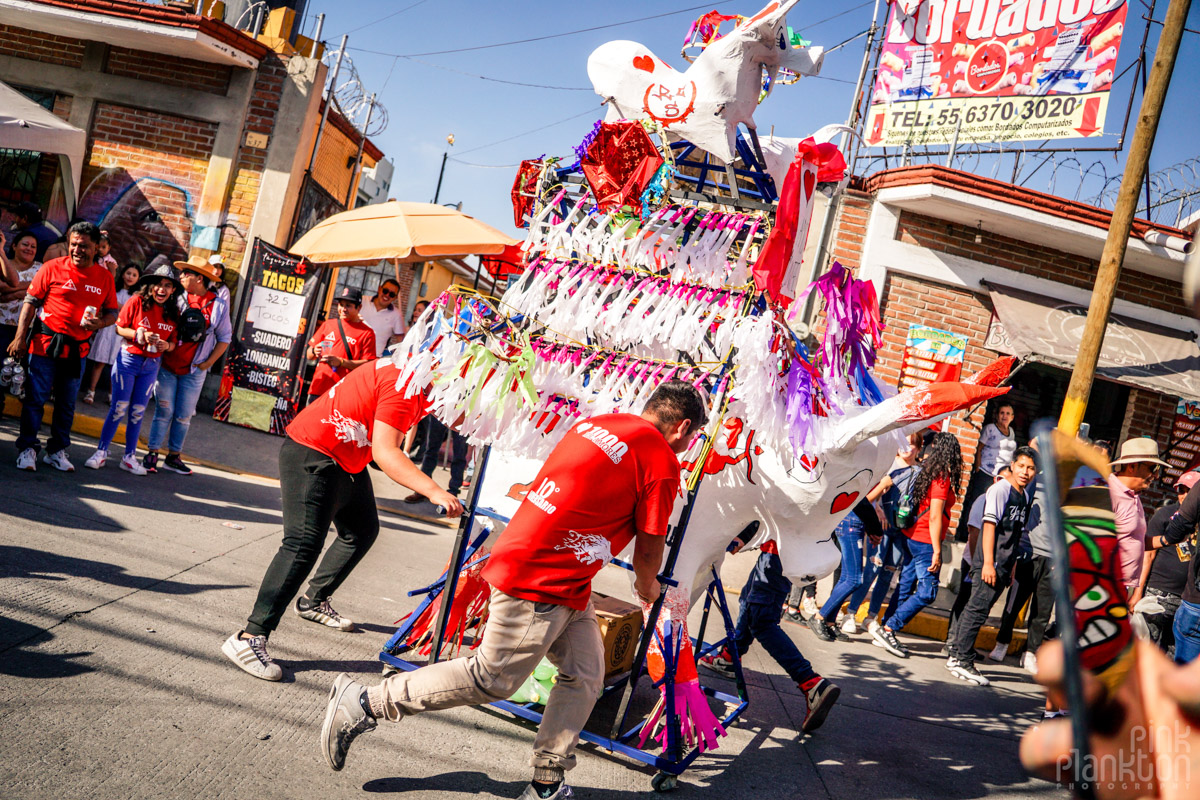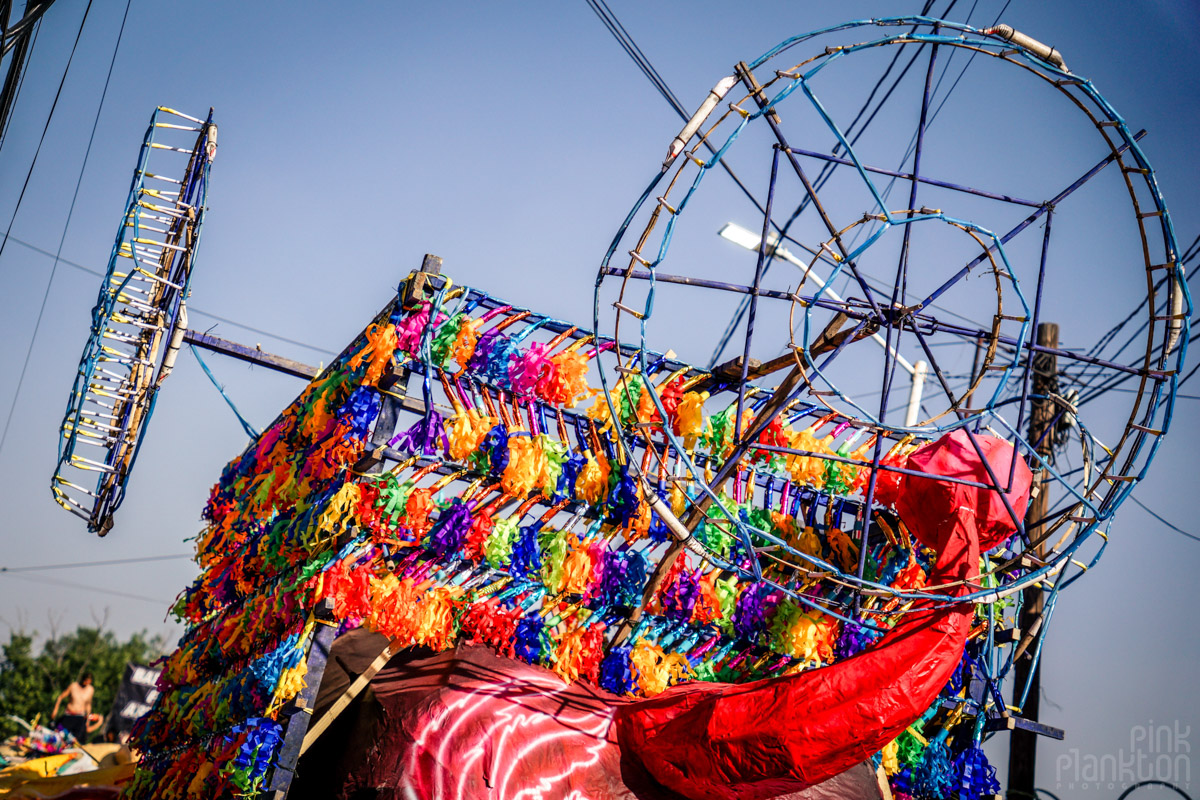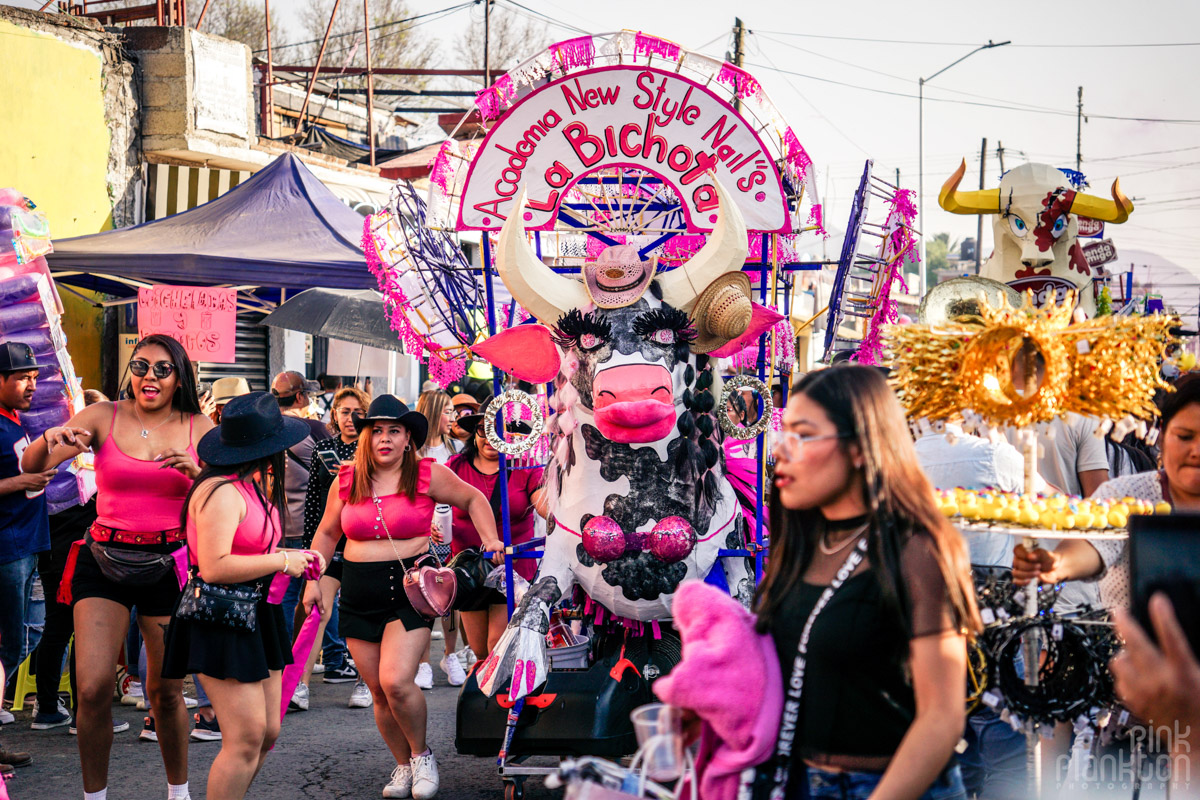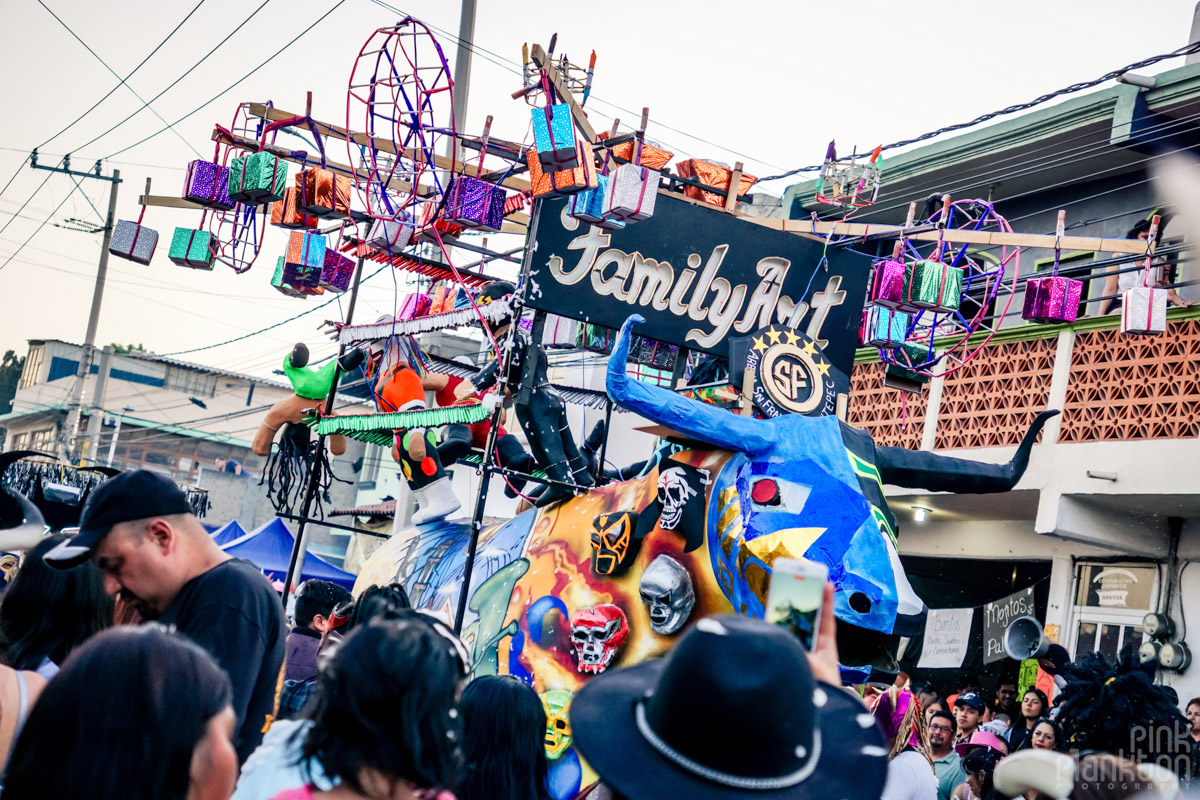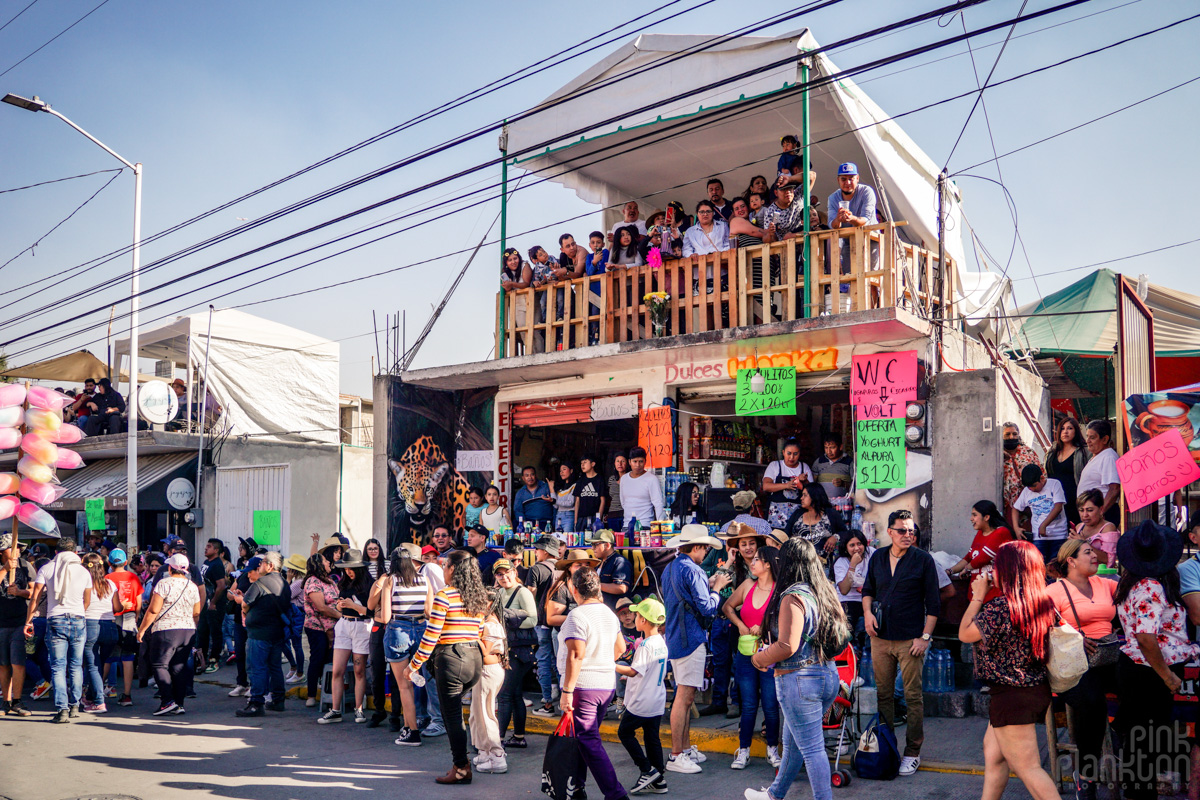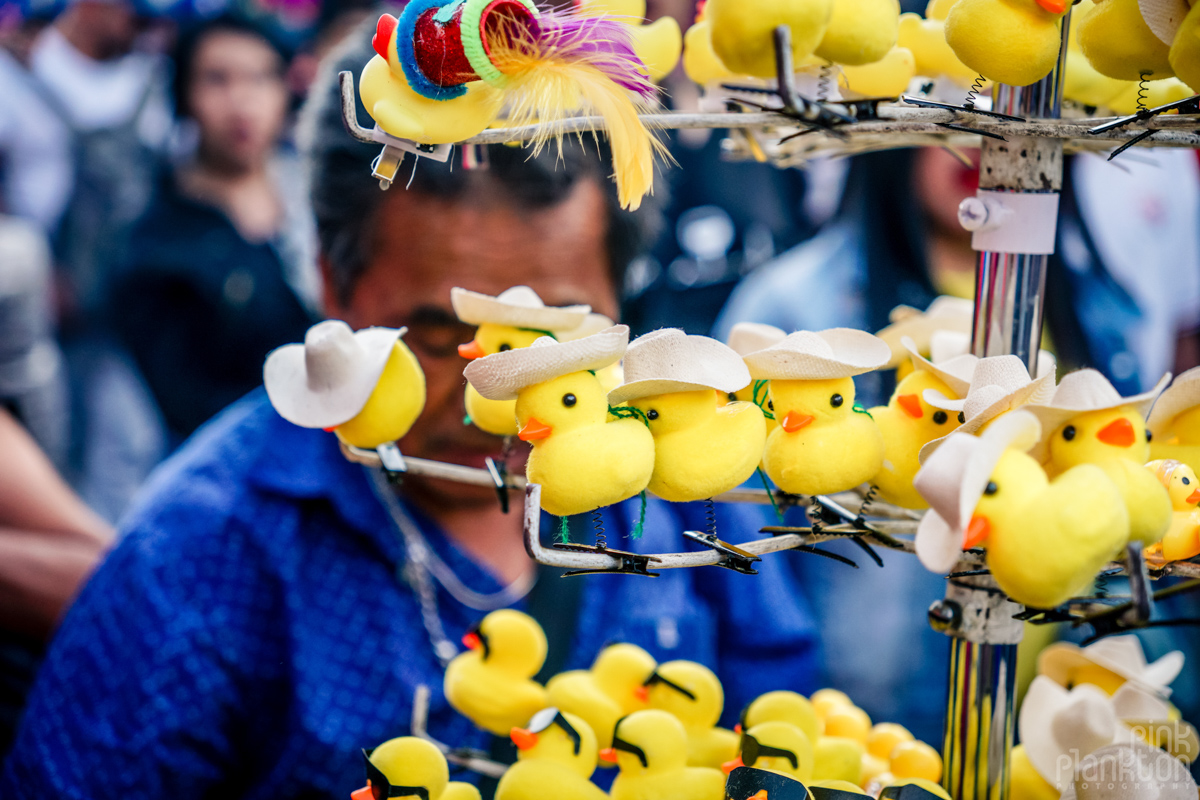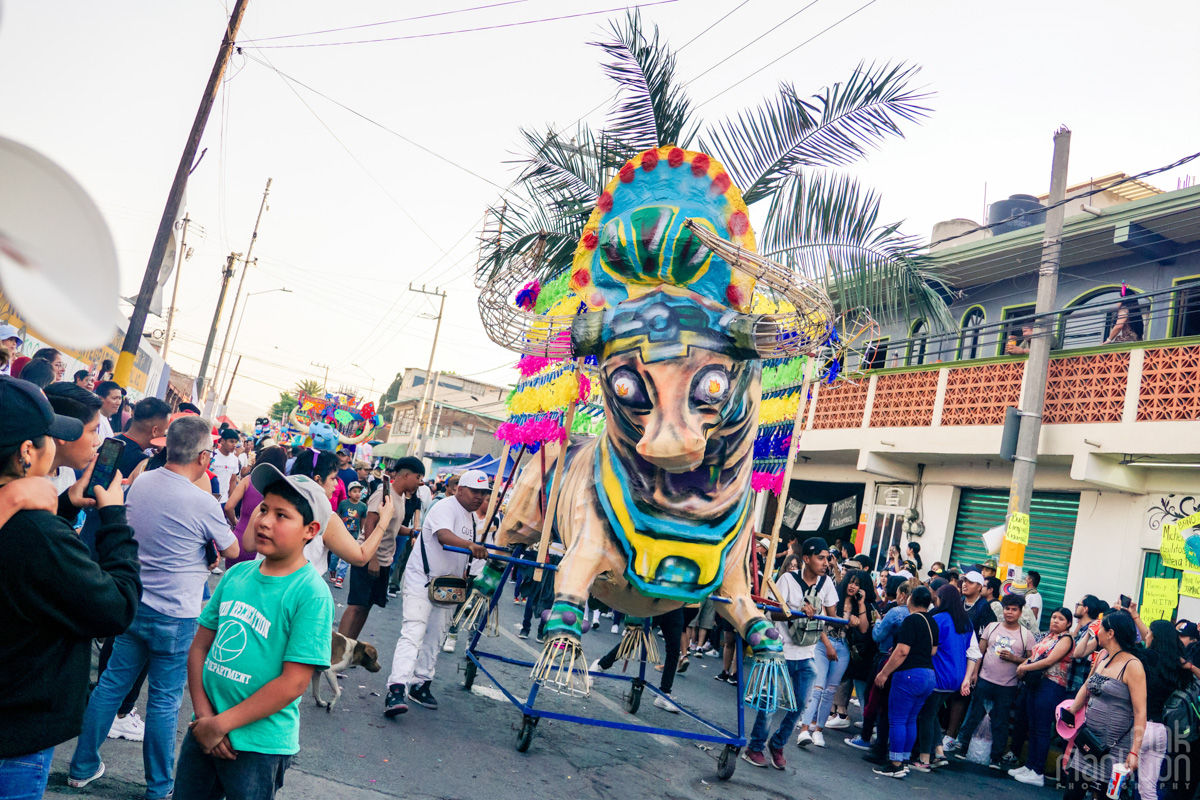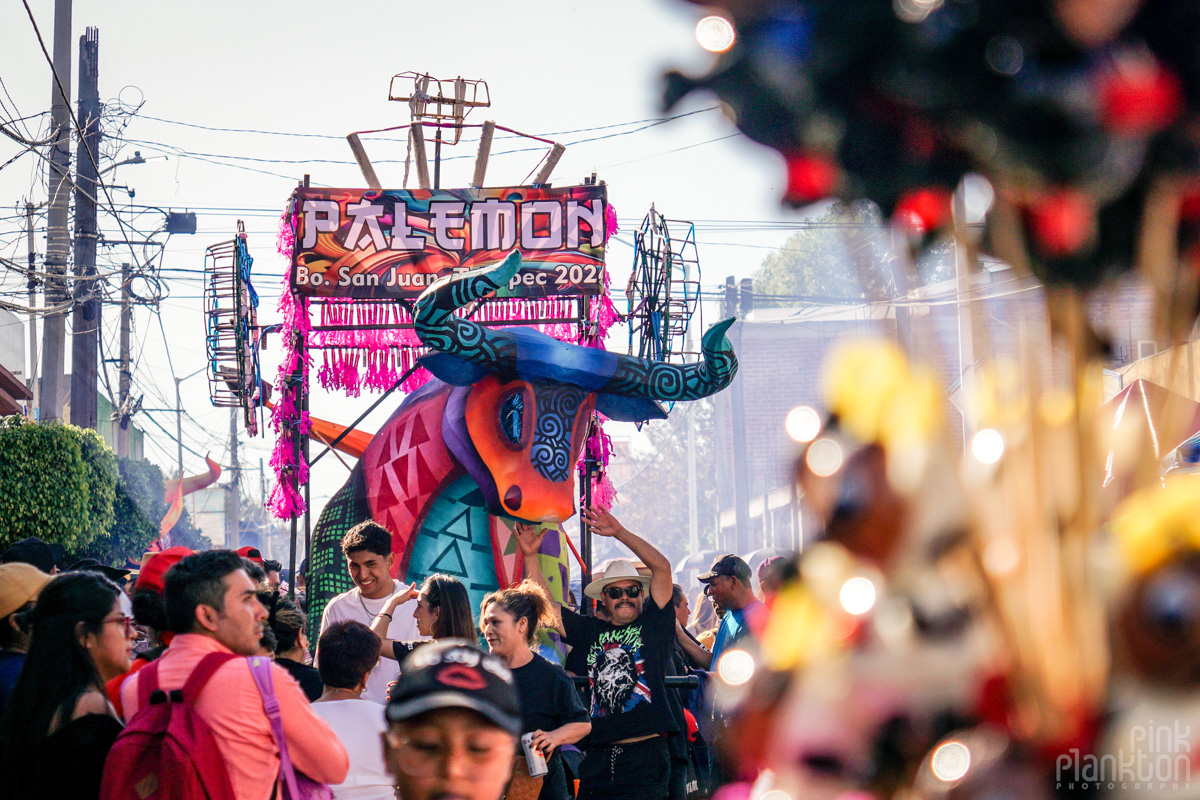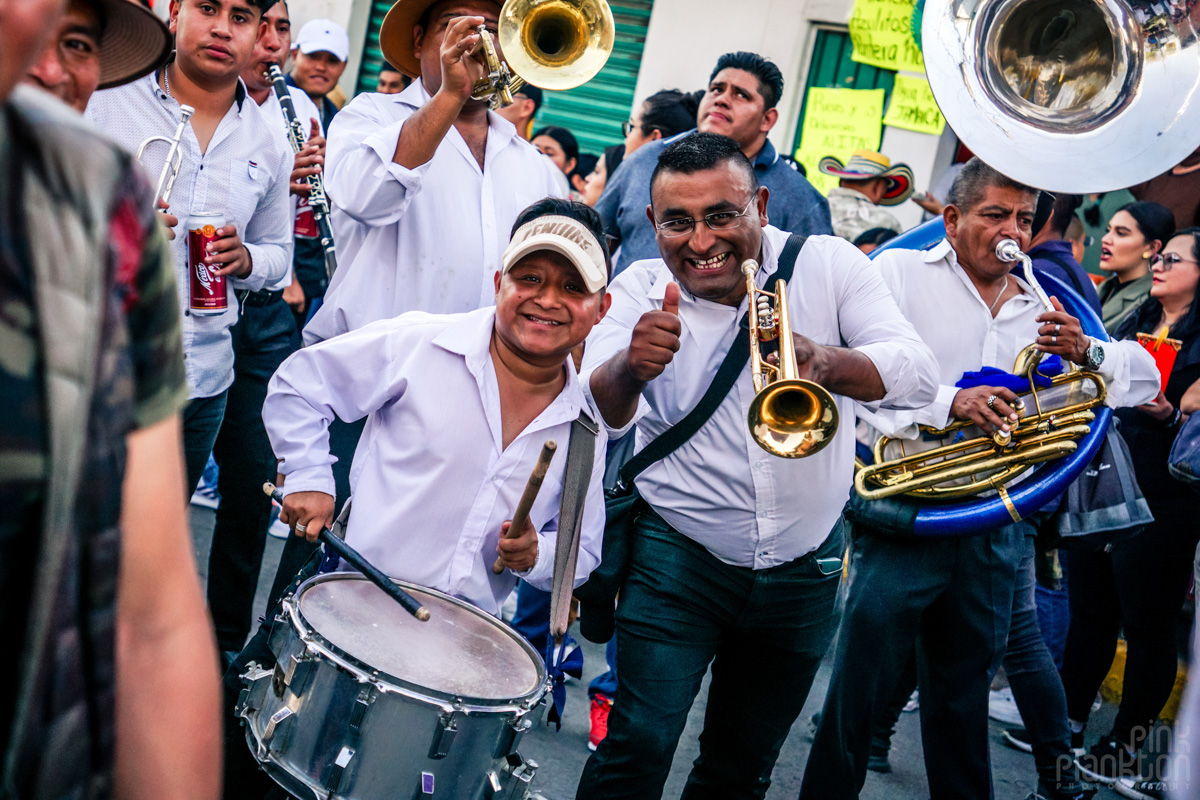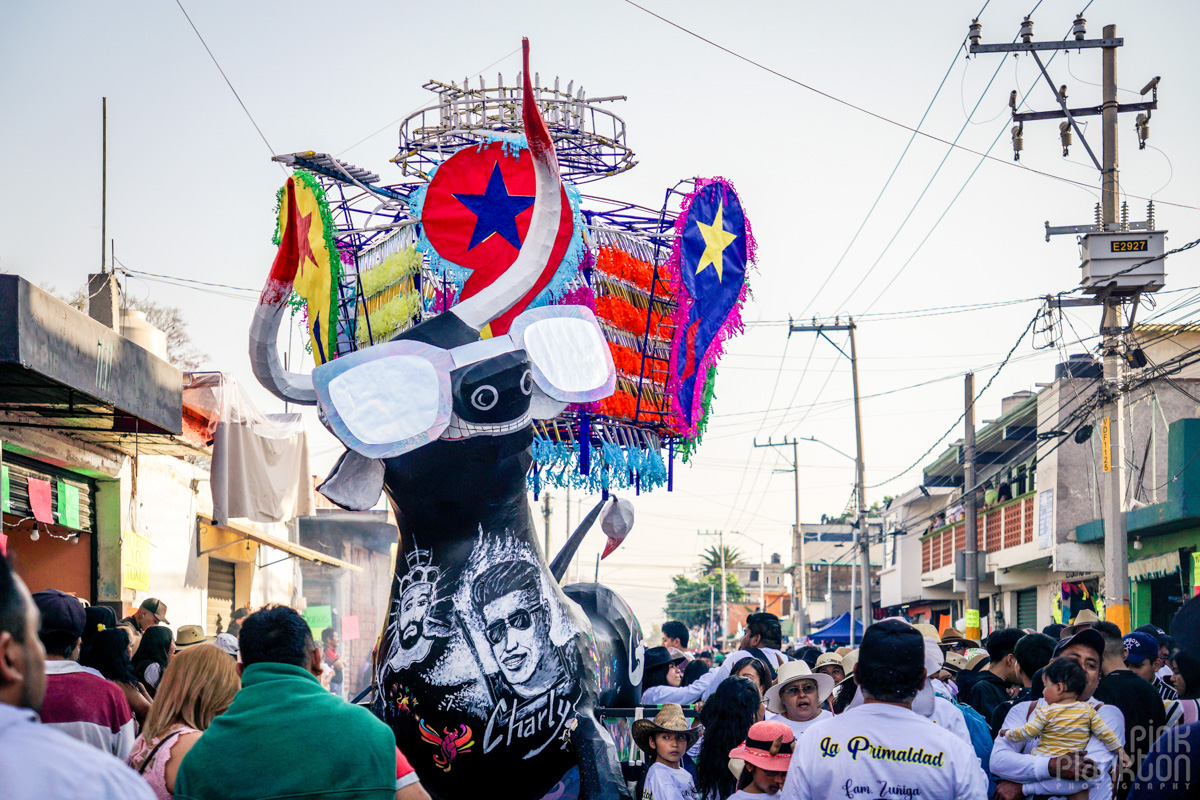Every year, a small town in Mexico lights up hundreds of paper mache bulls covered in fireworks and parades them through the streets for one night only. It's a crazy experience, teetering between danger and sheer exhilaration. The event is known as the the Quema de Toritos (which translates directly to Burning of Bulls) but is more widely known as Bulls of Fire.
This festivity is the highlight of the Feria Internacional De La Pirotecnia, or the International Pyrotechnics Festival, held annually in Tultepec, Mexico. The festival last for ten days in early March, and the Bulls of Fire parade takes place on March 8, honoring San Juan de Dios, the patron saint of pyrotechnics.
Click the video below to watch!
View this post on Instagram
The History of Bulls of Fire
Tultepec is a small town about an hour north of Mexico City and is where 75-80% of Mexico’s artisan fireworks are manufactured. The area is blessed with an abundance of saltpeter, a key ingredient in gunpowder production, and during colonial times the town became renowned for its skilled artisans who mastered the art of pyrotechnics. As demand for fireworks grew, Tultepec's economy flourished, and the town earned the title as Mexico’s “capital of pyrotechnics."
In the mid 19th century, March 8 was being celebrated as a feast day for San Juan de Dios. In 1988 there was a fireworks explosion at the Merced Market in Mexico City, which prompted officials to ban the manufacture and wholesale of fireworks within the city (Tultpec being part of the Greater Mexico City urban area). This was an economic blow to Tultepec, and so the National Pyrotecnics Festival began the following year in 1989 as a way to compensate and draw more sales and tourism to the town. 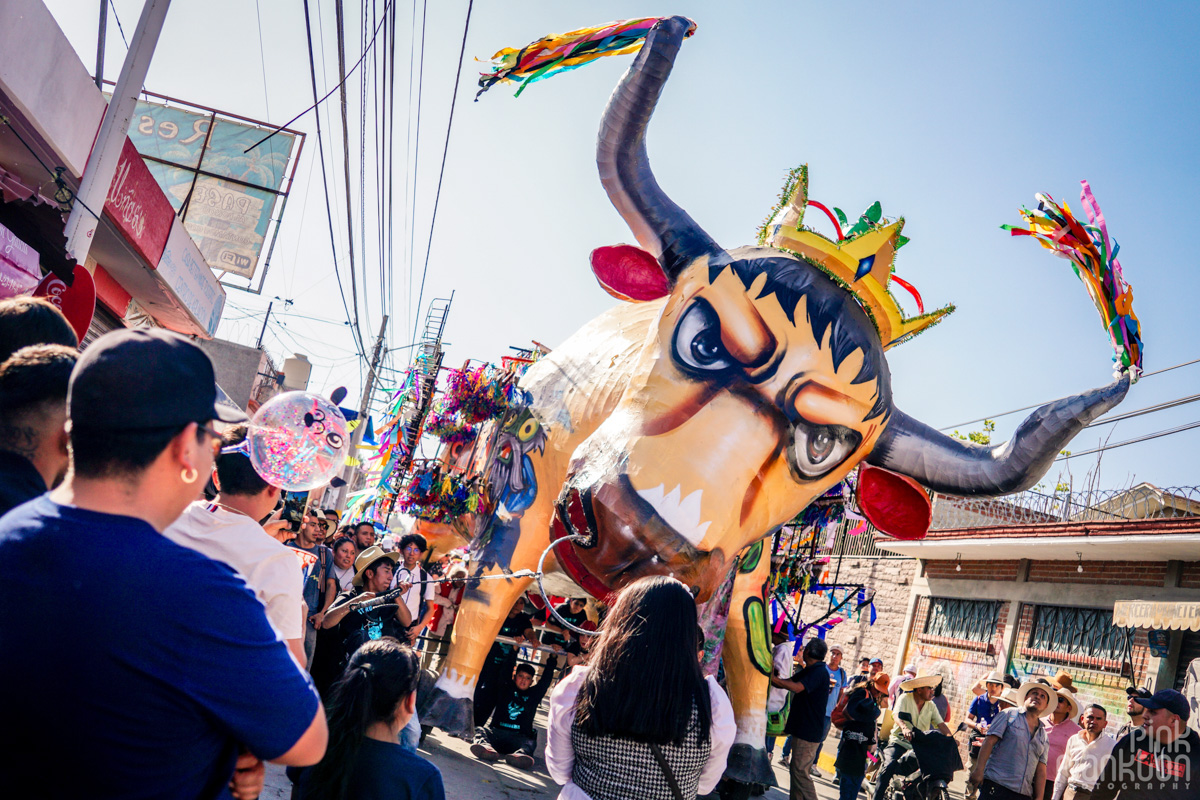
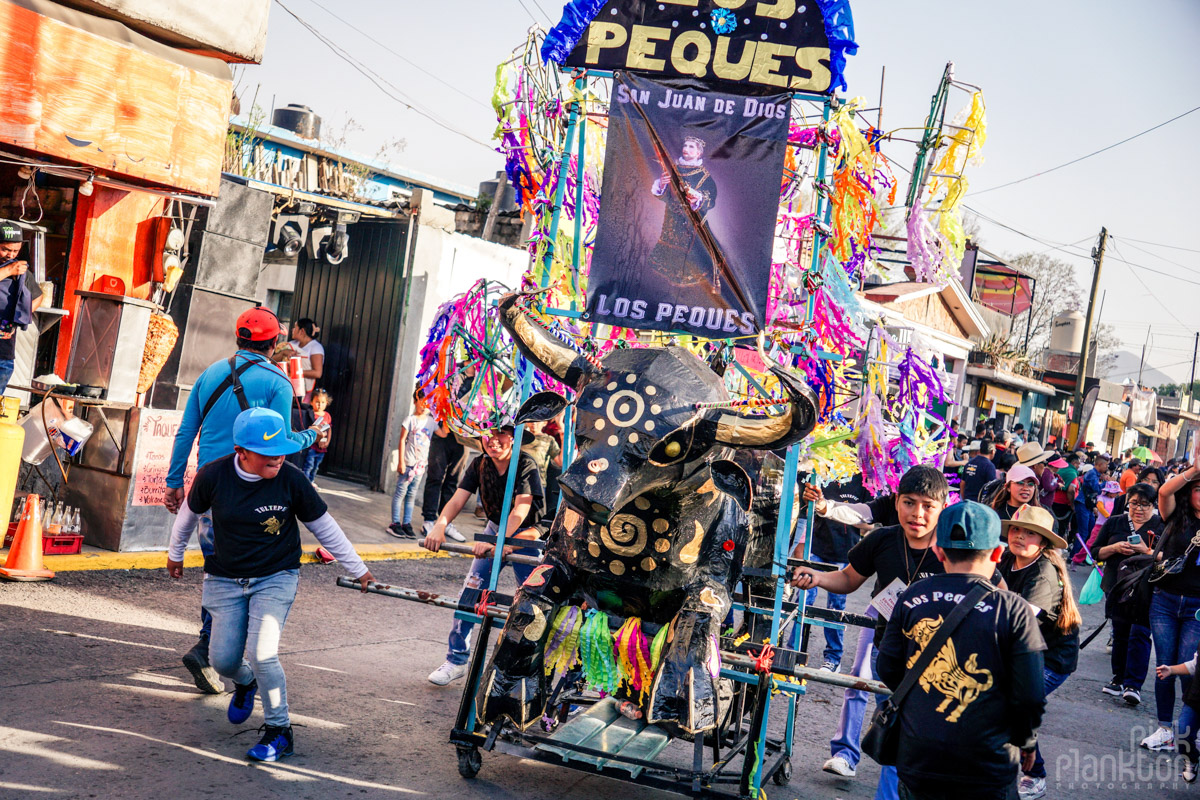
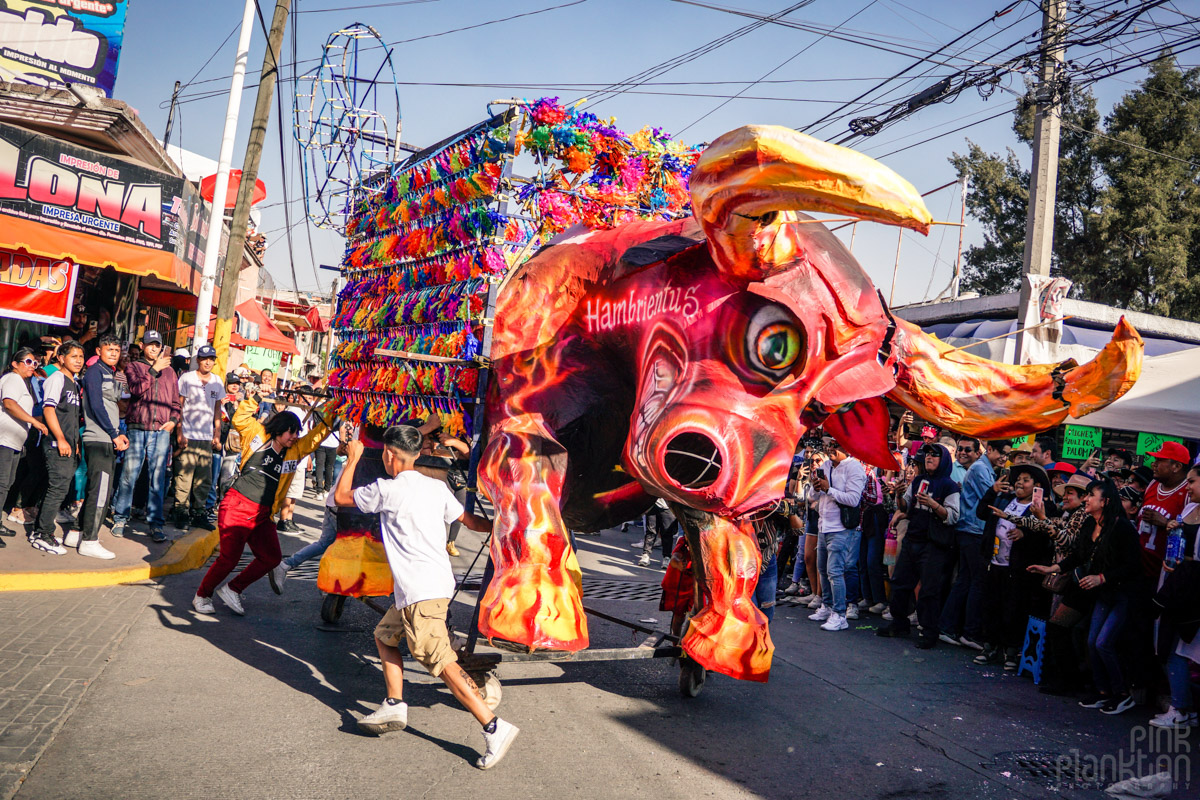
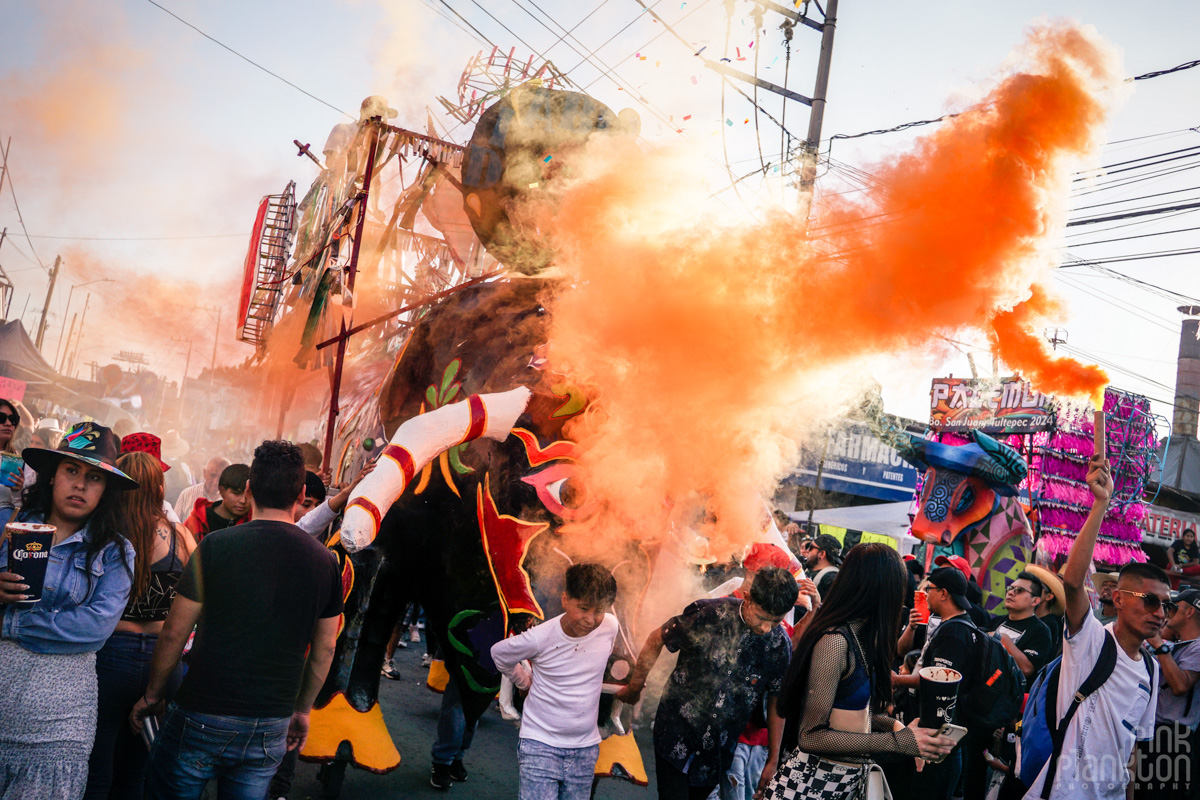
Witnessing Bulls of Fire Today
Today, over 300 toritos participate, each meticulously crafted over several weeks if not months, typically by a family or a particular group. By day, each group marches through the streets with their prized bull, amidst shouts of "Vuelta! Vuelta!" ("Turn!"), as the crowd cheers for the bulls to be spun in circles.
Vendors line the streets selling everything from food and drink, to toys and other souvenirs. Mexican’s love to party, thus the alcoholic drinks come in one size – giant 1 litre cups. Most bars either only carry beer or the infamous Azulito – a bright blue beverage consisting of energy drink, vodka, chamoy, gummies, and even fruit.
As night falls, the bulls are ceremoniously set ablaze near a large field on the outskirts of town. Only those that are brave enough gather close, risking danger for the exhilarating experience. Each bull ignites a frenzy of chaos, with fireworks shooting in all directions for several minutes. At times entire flaming pieces of the bull or spinning wheels of fireworks are launched into the crowd. And you never really know which way the bull will charge.
Amidst the excitement, caution is necessary, especially since by now many in the crowd have been drinking and partying all afternoon. As each bulls flames die down, the crowd chants, “Ese toro es puto!” meaning, “That bull is (insert vulgar swear word here)”. Another bull rolls up and the cycle repeats well into the night. 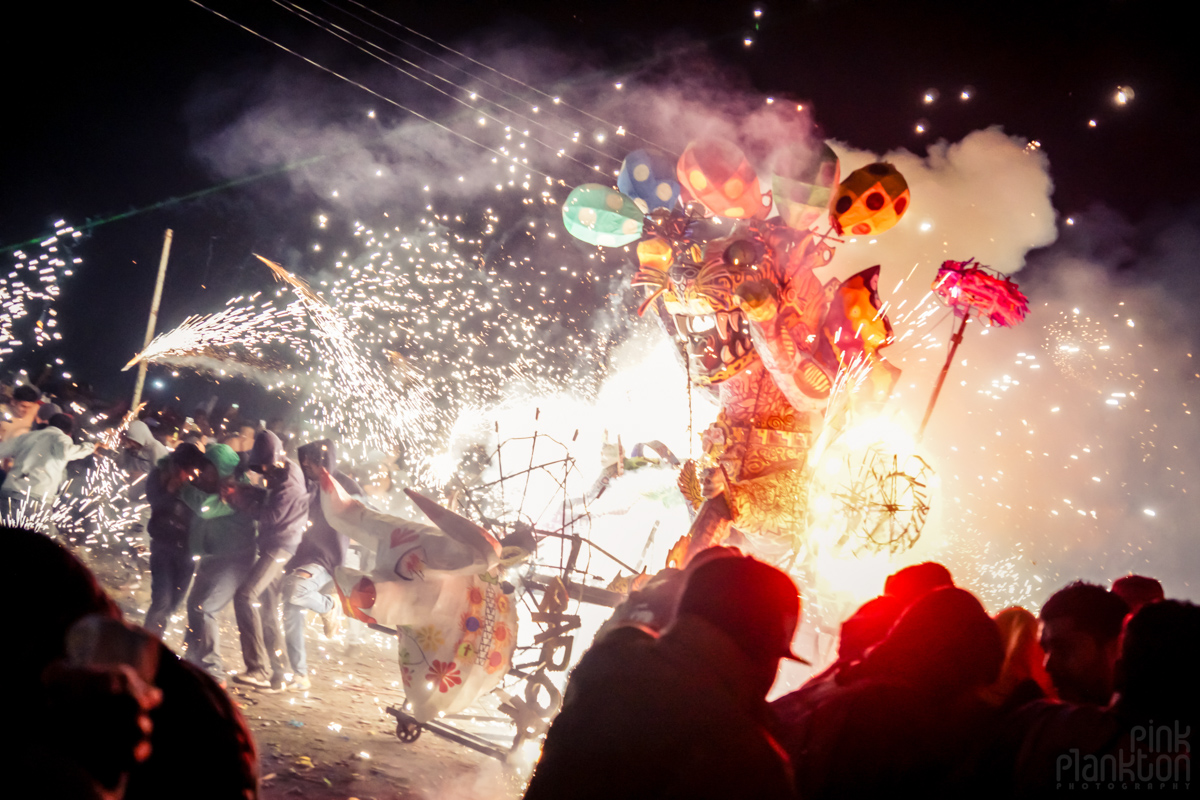
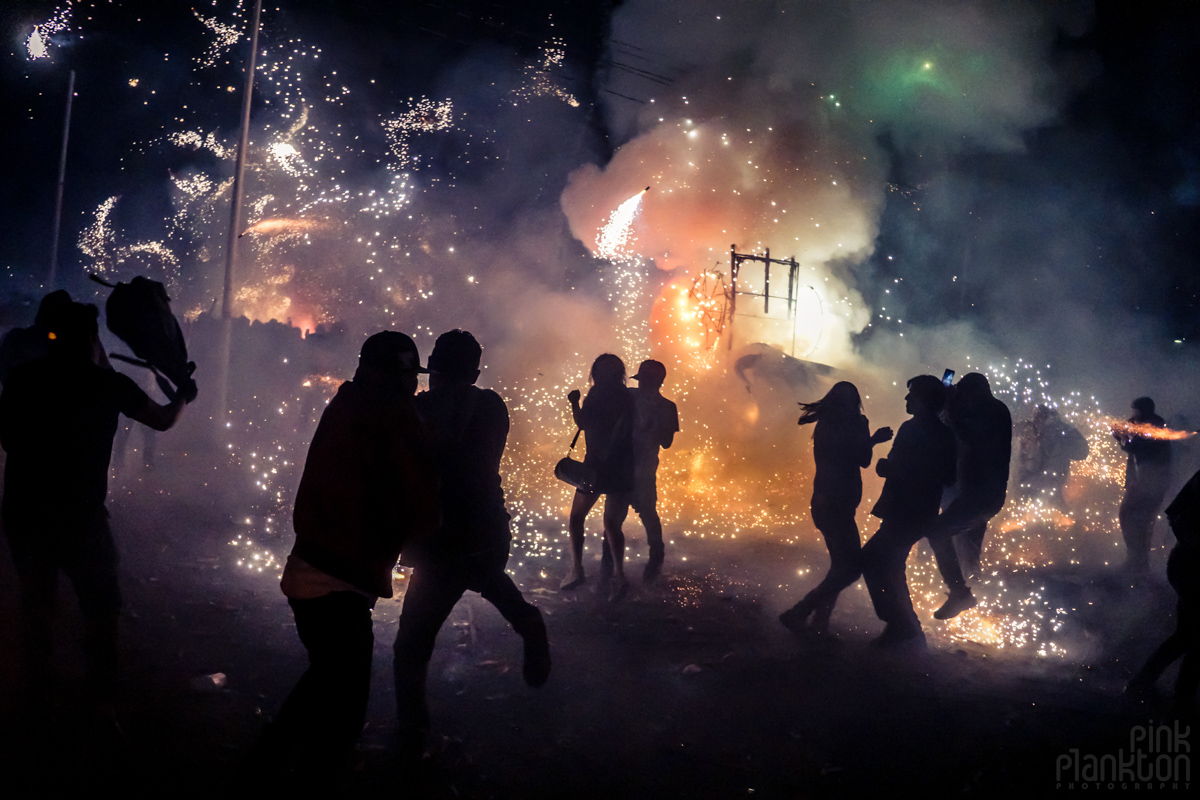
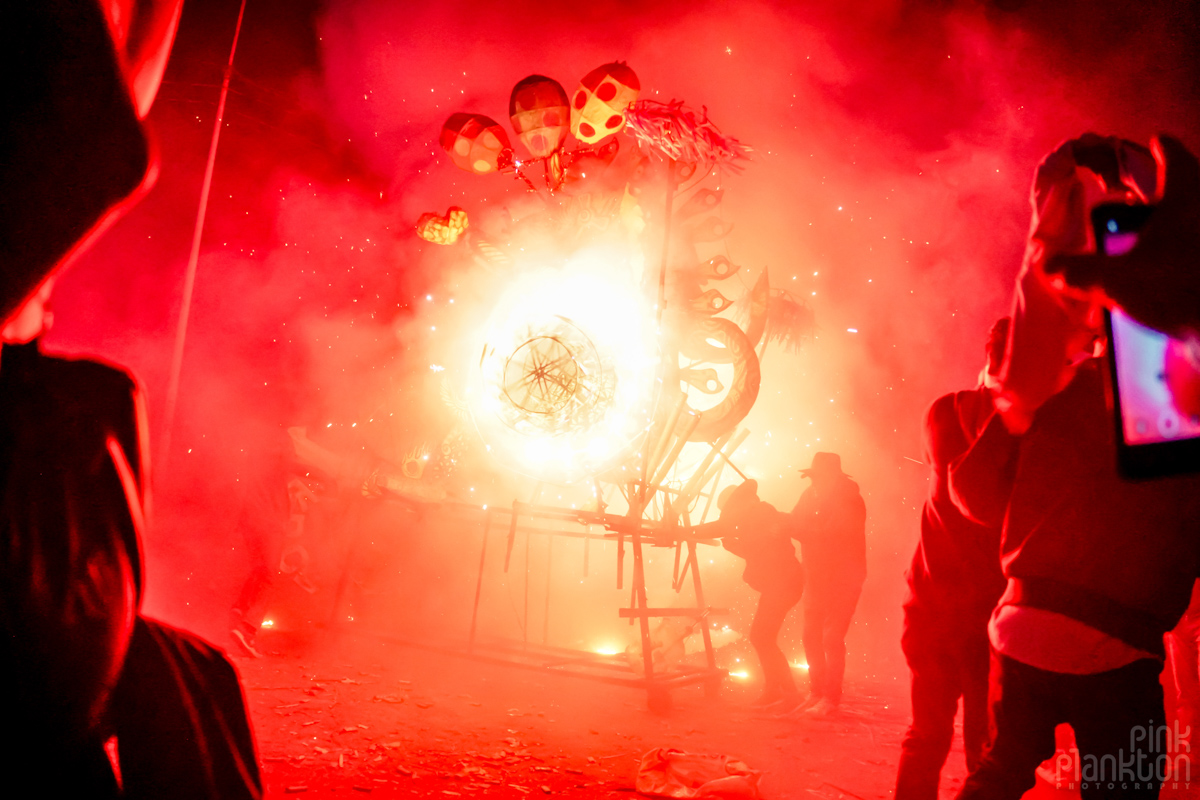
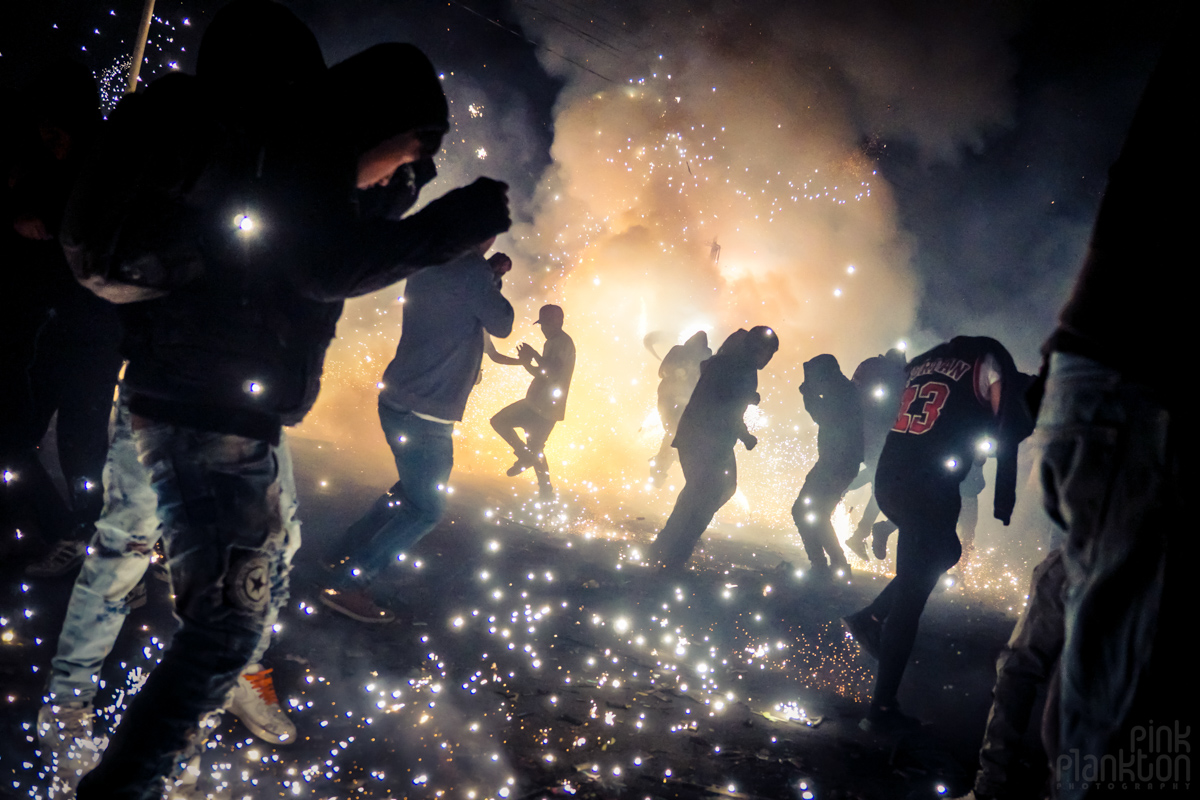
A Genuinely Terrifying Experience
As we entered the danger zone and our first bull lit up, I was honestly scared for my life. The fireworks were extremely loud and the hundreds of flame sparks shooting in all directions were way too close for comfort. I crouched down against a wall with my head buried into my arms, not daring to look up. I’d never been more afraid of bodily harm before in my life.
But after a while, the initial shock wears off and you grow a bit more accustomed to it all. You are able to look around and observe the spectacular visuals. It certainly helped that we had brought goggles. But even then, it was still very dangerous!
What shocked me the most was that most locals were in the line of fire without any sort of eye protection, some without even a shirt on! But this is what they are there for. As one local we met put it, there's no better feeling than the rush of adrenaline you get while you're jumping amidst the flames here—it's the ultimate high.
Everyone we met here was super friendly. There weren't many other foreigners around and you could tell the locals were happy to share the experience. Some even invited us to go right up front with them, urging us to fully immerse ourselves in the energy and adrenaline. Their passion for this tradition was inspiring to witness. 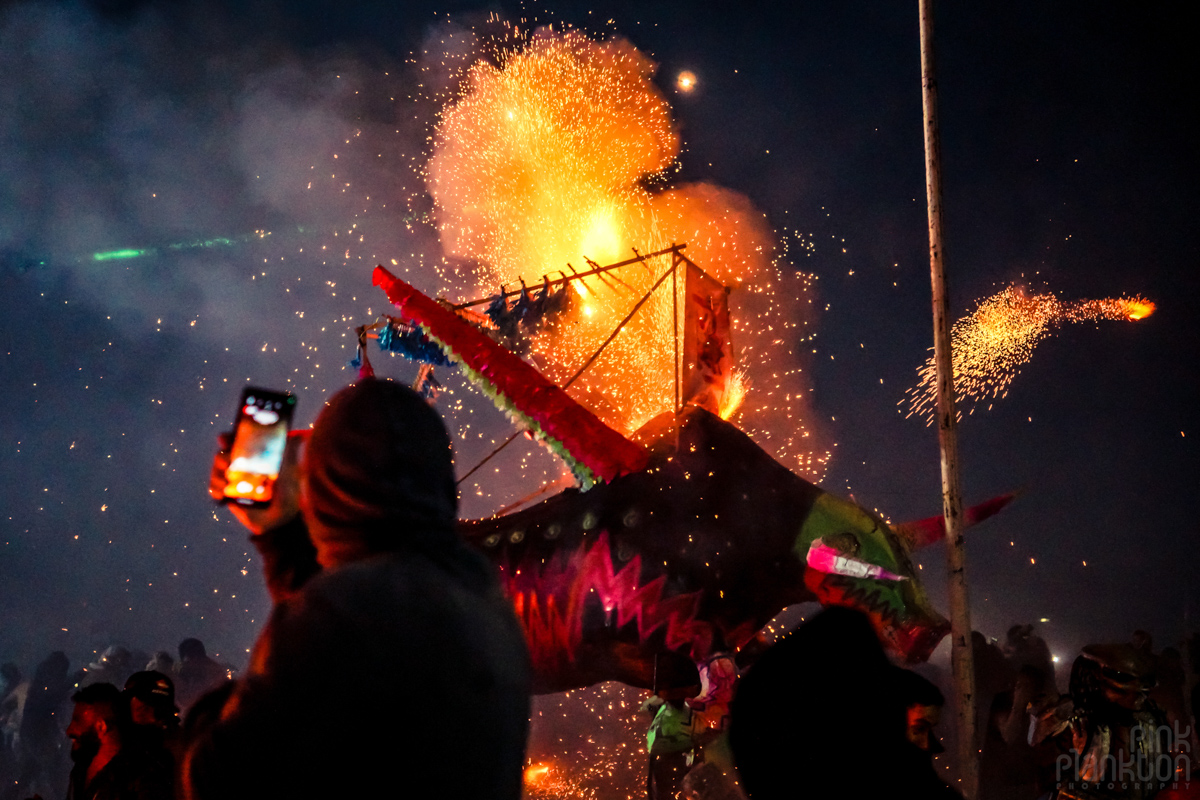
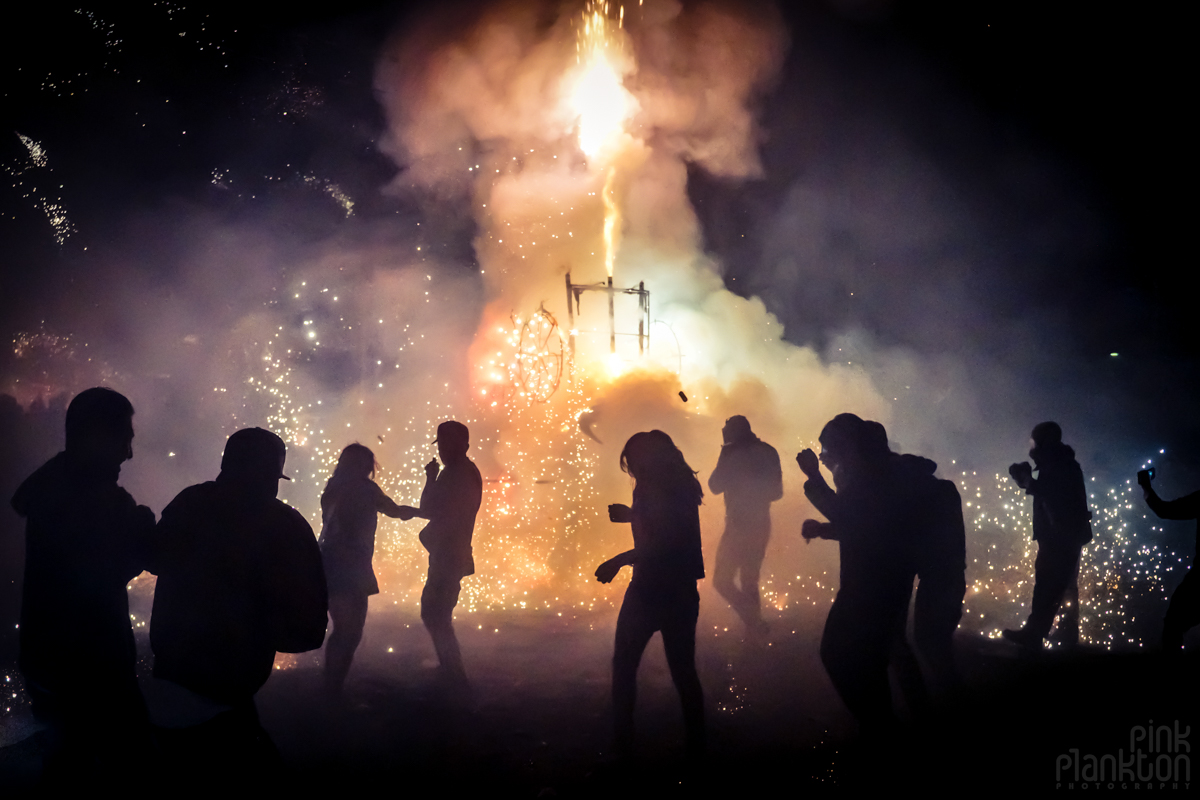
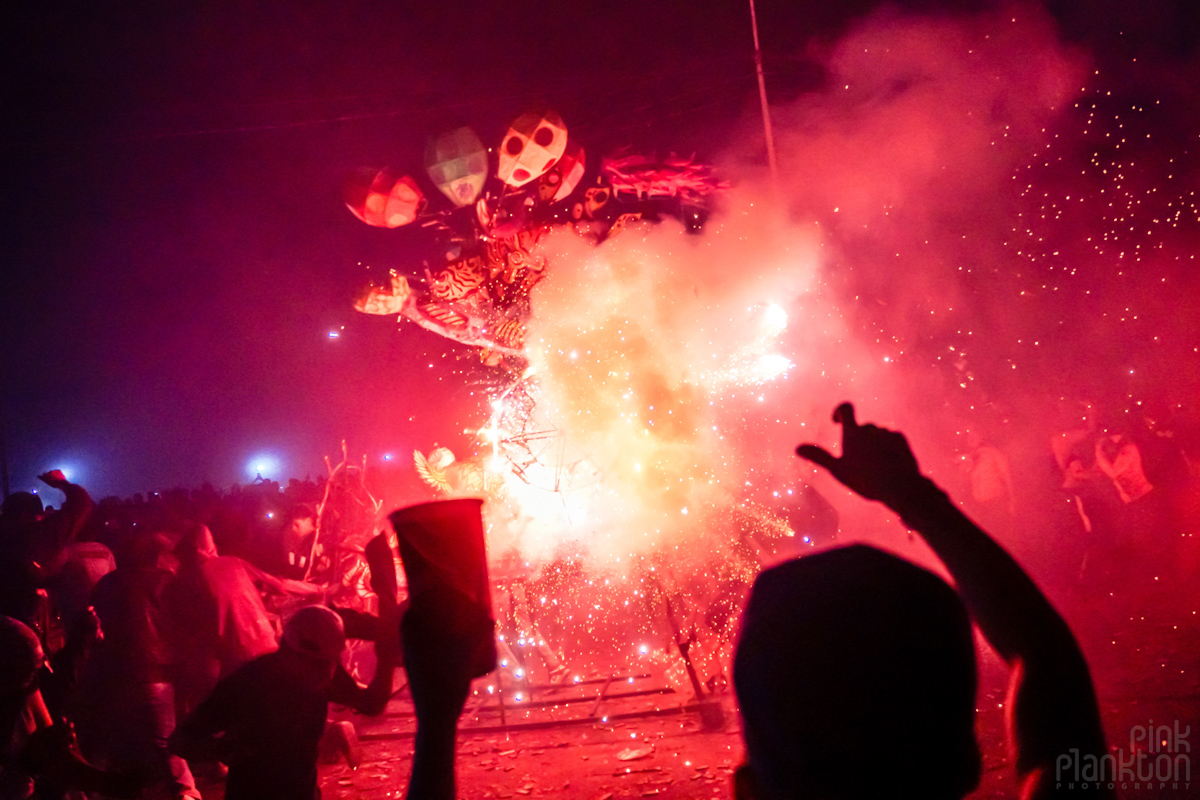
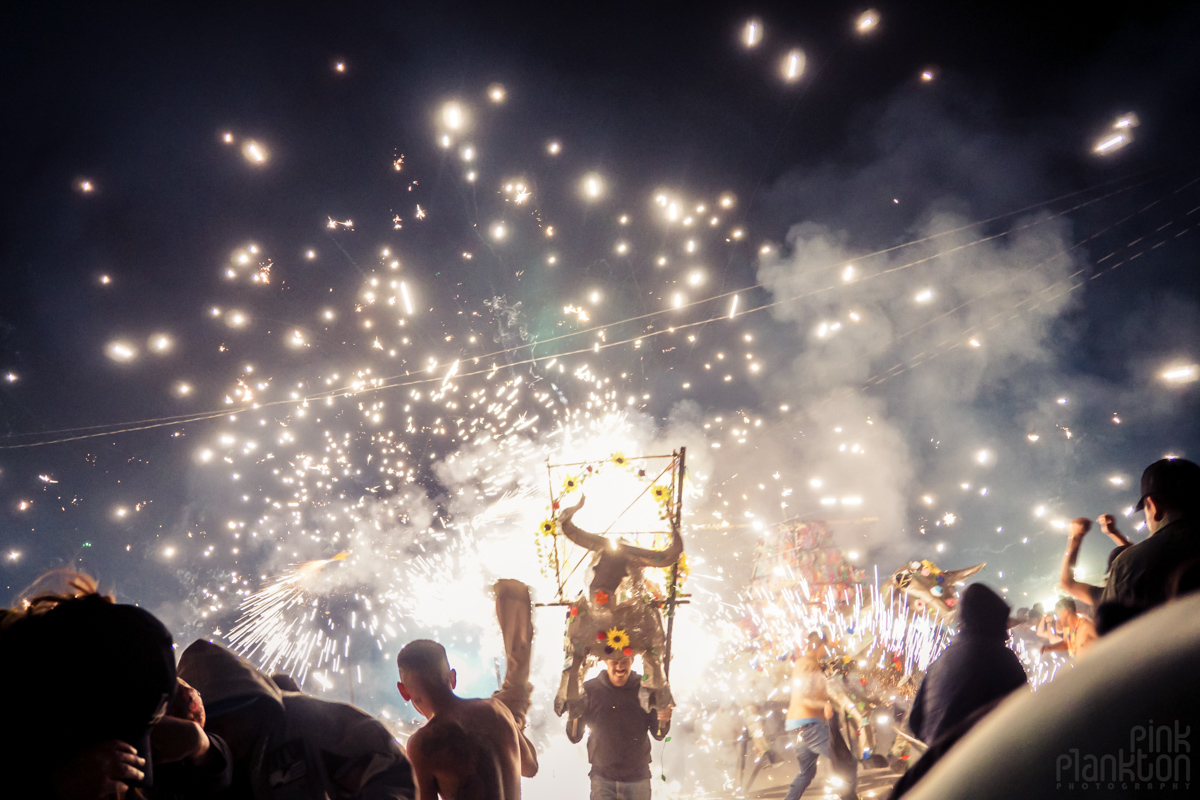
How to Experience Bulls of Fire
If you plan on getting up close to the bulls (which you should), I highly recommend wearing goggles, a face mask, and clothes that you don’t mind getting a few burn holes in. Cotton is best, avoid any flammable materials such as polyester, and cover as much of your skin as possible. This event is extremely dangerous, but if you come prepared you’ll be fine. As you would anywhere with large crowds, take care of your valuables and watch out for pick pocketers.
If you don’t have a car, the easiest way to get to Tultepec from Mexico City is by Uber or other ride sharing app. At the time of writing, a one-way trip was about $400 pesos (about $25 USD). You can also take a bus from Mexico City’s Terminal Central de Autobuses del Norte.
There are not many options for accommodation in Tultepec, but we stayed in Blanca’s Airbnb. She has a few rooms which are simple and clean. Her house is very close to the centre of town and about a half an hour walk from the Quema de Toritos, so the location is great. 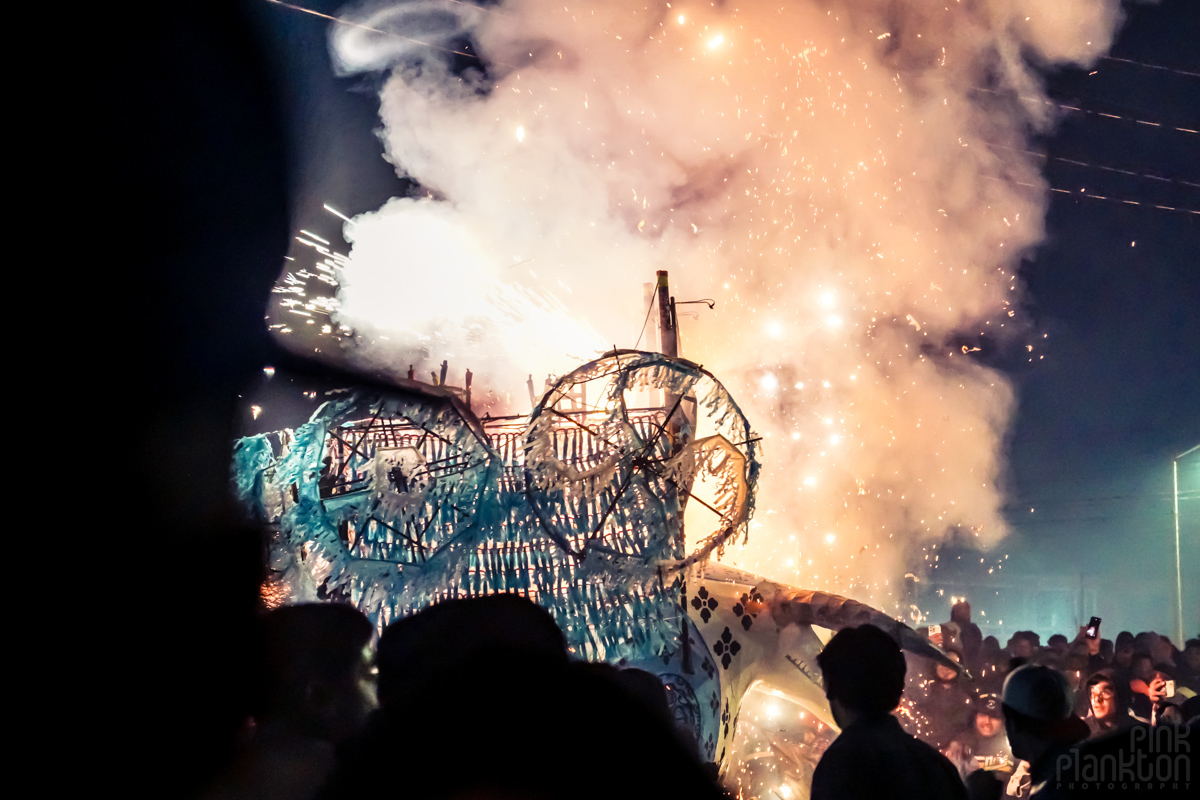
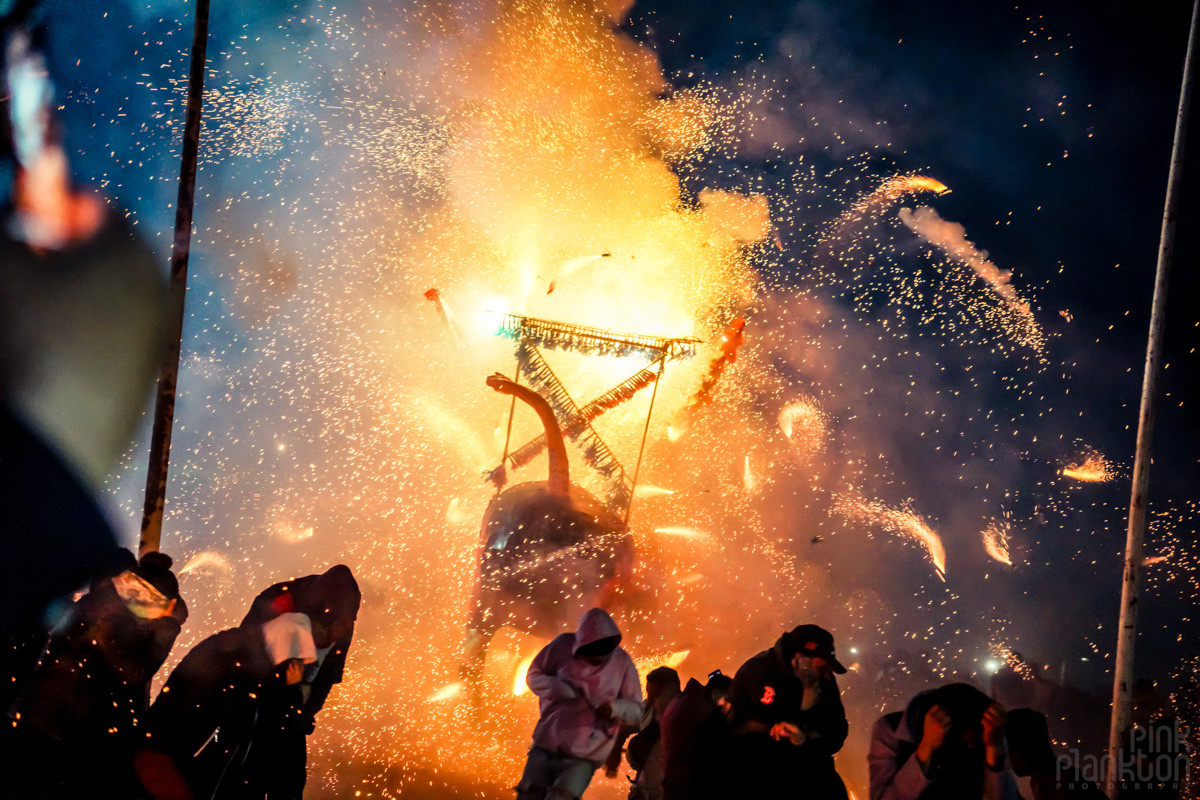
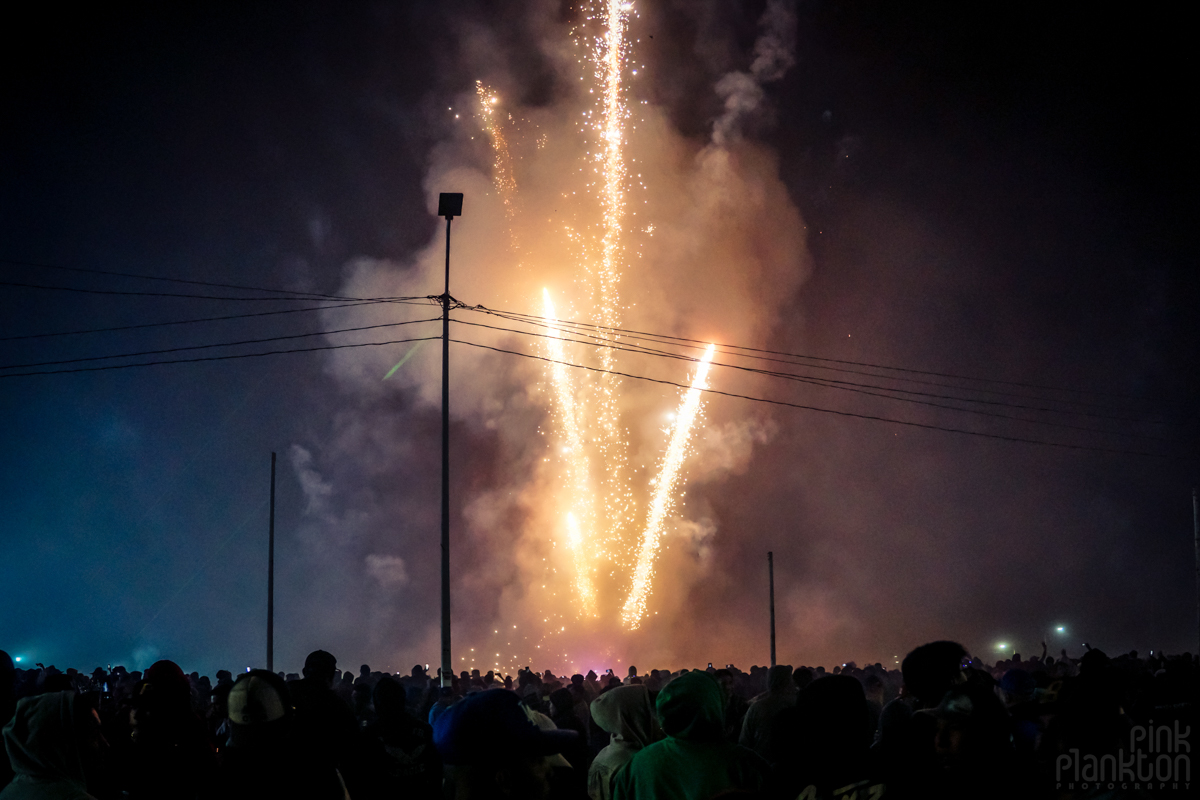
The International Pyrotechnics Festival
As mentioned, Bulls of Fire is part of the Feria Internacional De La Pirotecnia, which runs for 10 days. Other notable events are the Concurso Nacional de Castillos, or the National Castles Competition, where giant metal towers resembling castles are covered in a fireworks display, and the Concurso Internacional de Piromusicales, or the International Competition of Pyromusicals, where fireworks are synchronized to music. Let me tell you, these fireworks shows are next level. They are entire choreographed shows that utilize physical structures as launchpads for the pyrotechnics. It’s unlike anything you’ve seen at your average New Year’s or Fourth of July.
If you do go, be sure to check the schedule to decide how long you want to stay. This page on Facebook is a great resource. 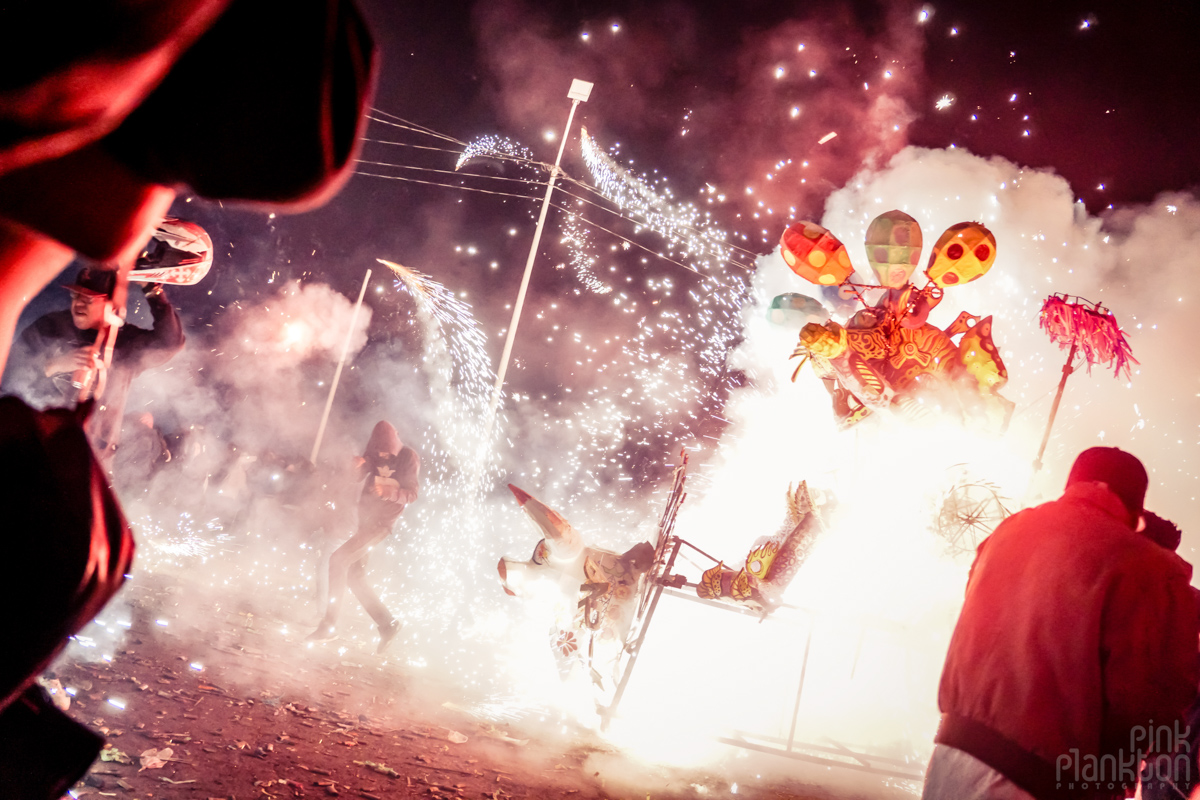
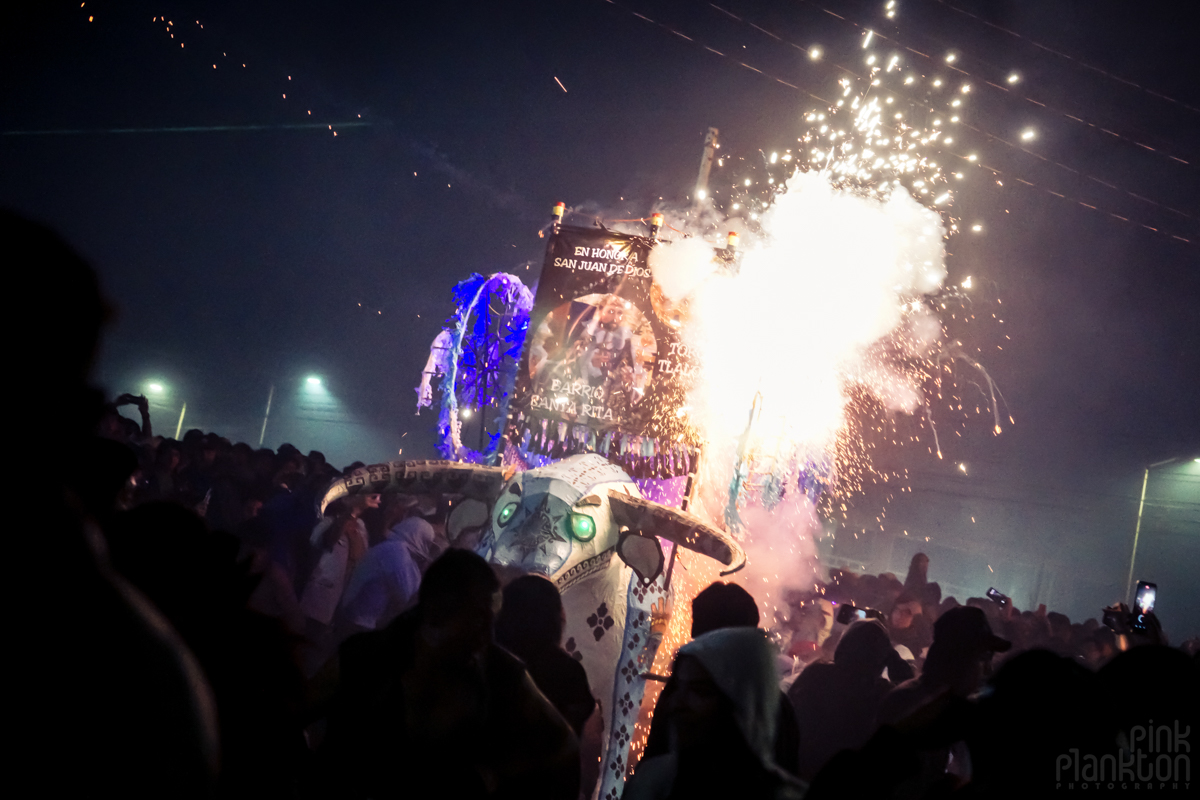
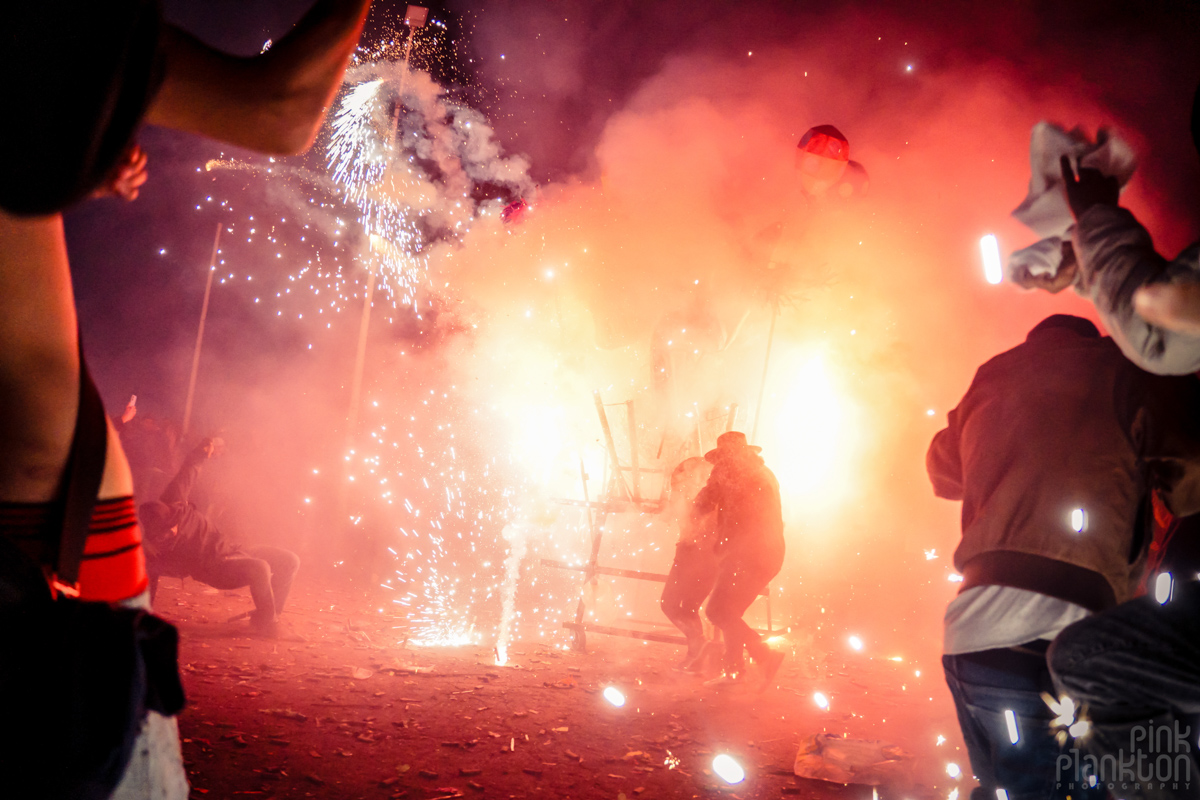
Tips for Photographing Bulls of Fire
Photographing the event is a challenge. The changing light conditions combined with the fast movement of everything made it hard to get shots in focus and properly exposed. Oh, plus the fact that fire is shooting literally everywhere and your survival instinct kicks in and becomes your top priority. It's a very chaotic environment to be concentrating on camera settings. You'll probably need to manually adjust the focus since your camera may struggle to determine what to focus on. And ensure you use a fast shutter speed to accurately capture the movement.
Don't forget to put the camera away for a bit, be present, and see everything with your own eyes. It's really an amazing visual spectacle to witness. The photos and videos really don't do it justice. There is nothing else quite like it on earth.
Here are a few more of my favorite shots from the daytime:
